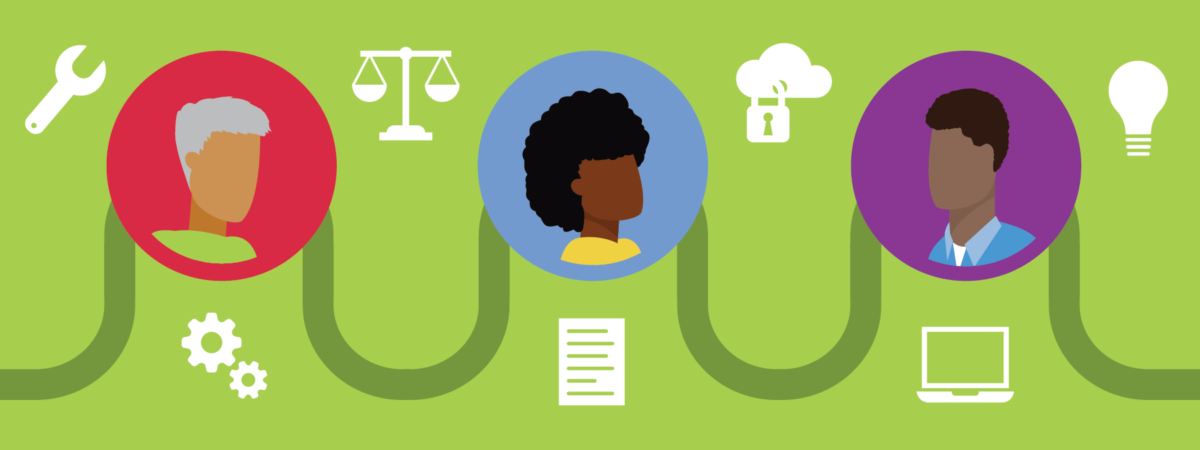
Over the last couple of years we’ve seen the development of a new suite of technologies called Learning and Employment Record (LER) technology, also referred to as Comprehensive Learner Records or CLRs. LERs are being developed to integrate and display a comprehensive record of an individual’s learning and employment data. Compiled in multiple formats from numerous contexts, this data ecosystem represents an individual’s skills, competencies, credentials, employment history, and in some cases their interests throughout their lifetime.
LER technologies may create a complete picture of a learner or worker, making their skills and credentials visible not only to them but also to others — having the potential to impact their learning and employment opportunities.
When LERs are co-designed for inclusion with historically and systematically learners, they may present a more complete and accurate picture of an individual’s learning, education, and work experience. Individuals have long struggled to demonstrate their whole and varied experiences as they travel the path that most interests, supports, or is available to them.
The promise of LERs is that they may also decrease inequities by reducing the focus on credentials that individuals have earned and increasing the focus on what individuals can do and have done. LERs can help individuals show they are qualified for jobs by articulating their skills and competencies to an employer, thus increasing economic mobility for individuals who have been disproportionately impacted by degree-based hiring practices in favor of skills-based practices. When co-designed with and for learners, LERs may also incorporate features and functionality to strengthen and make profiles inclusive of data that has been verified, updated over time, and shareable across data systems with different parties when and if needed.
When LERs are co-designed with a learner agency at the forefront, learners will have increased control over their learning, employment, and identity data. Individuals will be able to see and consent to who has access to their records, who can use it, and how they can support them along their pathways.
To date, K-12 and post-secondary education institutions, as well as employers, have sovereignty over an individual’s learning and work data. This data is often used to profile, understand, and serve learners and workers. Yet, often this data is used without permission, consent, or their access to be able to correct, update, or even delete data that may be inaccurate. LER technologies may empower learners and workers in what and with whom they share their information, and ultimately reshape how education and employment systems consider learner and worker data and information.
Despite the immense benefits and the promise of LER technologies for equity, there are still many hurdles to overcome with their data design and deployment. These hurdles will require education institutions and employers to adopt a more comprehensive and decentralized approach to learning data and information system management and engagement in data literacy education. Developers must also include learners, education providers, and employers—all of whom are often absent stakeholder voices in data and information systems design—as co-designers in the development of LERs technologies.
To advance the work, the Pathways and Credentials team* at Digital Promise is engaged in a series of projects focusing on the equitable design of LER technology, prioritizing historically and systematically excluded learners. These project include:
To learn more about the portfolio of LER projects that Digital Promise is engaged in, please complete this form or email us, and a member of our Learning and Employment Innovations team will be in contact.
*The Pathways and Credentials team includes Learning and Employment Innovations, Micro-credentials, Adult Learning, and Product Certification initiatives.

We want to hear from you!
Please take this 5-minute survey and help us serve you better.
